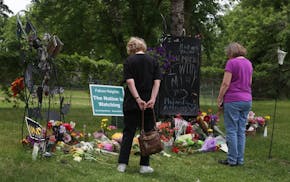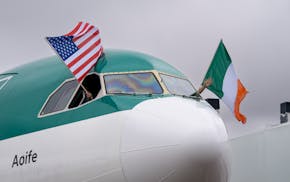Some Cuban-Americans in Minnesota cheered news of normalizing relations with their homeland. By recent estimates, several thousand Cuba natives call the state home.
For Twins great Tony Oliva, the thaw in relations is a long time coming. He's lived in the United States since 1960, when he came here to play baseball, and for several years the embargo meant he could not return home to visit his parents, his five siblings and the rest of his family.
That changed in the 1980s, when travel restrictions were eased and he was granted a visa to make an annual trip to his homeland. Oliva just returned from Cuba in November and said the sentiment there, especially since the economic downturn of the past five years, has been: What's taking so long?
"I know the Cuban people have been waiting for this moment for a long time, because it doesn't make sense not to have a relationship," the 76-year-old Oliva said. "Cuba is only 90 miles from the United States. They were very close for hundreds of years. How could they be apart for so long?"
Now that they've taken steps toward each other again, "It's a happy day, a great day for both countries," Oliva said. "I love my country. I love the United States. I think everybody should be allowed to go to Cuba and see it's a wonderful country."
Roberto Fonts-Diaz, who owns a Twin Cities translation and communications business, says the U.S. embargo was "an incredible opportunity for Cuba to build character." But the country is also in need of transformation, he said. A 2009 trip home revealed crumbling infrastructure and widespread pollution, even as it affirmed his love for Cuban culture. Cuban Americans can be key ambassadors to spur change and "empower the Cuban people," he said.
"Since I was a little kid, I wanted the Cuban embargo to be lifted," Fonts-Diaz said, his voice breaking with emotion. "I am very deeply touched that my request has been fulfilled."
Victor Valens, 64, former owner of Victor's 1959 Café in south Minneapolis, left Cuba for the United States when he was 11, making frequent trips back to his native country through Mexico and Canada. "My dream right now is to be in Havana when Air Force One lands at José Martí airport," he said. "I will go when that happens, and I know it will."
Carla Riehle of the Minnesota Cuba Committee, an almost 25-year-old group advocating for opening up relations between the two countries, said she hopes travel for Americans will become cheaper and easier.
"We are all extremely gratified this is happening," she said. "After 50 years, it's about time."
phil.miller@startribune.com
mila.koumpilova@startribune.com 612-673-4781

Gun safety bills may hinge on one senator's fate despite House support, likely passage

Falcon Heights, St. Anthony nearing police partnership severed after Philando Castile's killing

Supporters rally at courthouse as state trooper appears for hearing in shooting

DFL Sen. Nicole Mitchell returns to Capitol after burglary charge, casts votes amid criticism

![Former Minnesota Twins player Tony Oliva. Oliva was born in Cuba. ] CARLOS GONZALEZ cgonzalez@startribune.com - December 17, 2014, Bloomington, Minn.,](https://arc.stimg.co/startribunemedia/HHT3YTBQMVSM6KQM6CSVEIHQEY.jpg?w=600&h=600&auto=format%2Ccompress&cs=tinysrgb)